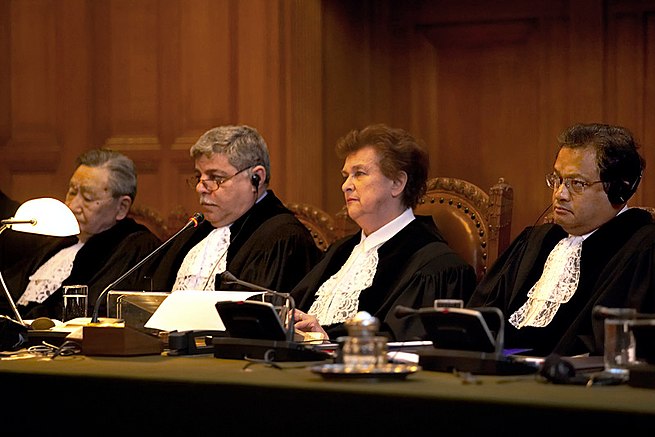Judgyadjective
(informal) Inclined to make judgments; judgmental.
Judgenoun
A public official whose duty it is to administer the law, especially by presiding over trials and rendering judgments; a justice.
Judgenoun
A person who decides the fate of someone or something that has been called into question.
Judgenoun
A person officiating at a sports event or similar.
Judgenoun
A person who evaluates something or forms an opinion.
Judgeverb
(transitive) To sit in judgment on; to pass sentence on.
Judgeverb
(intransitive) To sit in judgment, to act as judge.
Judgeverb
(transitive) To form an opinion on.
Judgeverb
(intransitive) To arbitrate; to pass opinion on something, especially to settle a dispute etc.
Judgeverb
(transitive) To have as an opinion; to consider, suppose.
Judgeverb
(intransitive) To form an opinion; to infer.
Judgeverb
(ambitransitive) To criticize or label another person or thing.
Judgenoun
A public officer who is invested with authority to hear and determine litigated causes, and to administer justice between parties in courts held for that purpose.
Judgenoun
One who has skill, knowledge, or experience, sufficient to decide on the merits of a question, or on the quality or value of anything; one who discerns properties or relations with skill and readiness; a connoisseur; an expert; a critic.
Judgenoun
A person appointed to decide in a trial of skill, speed, etc., between two or more parties; an umpire; as, a judge in a horse race.
Judgenoun
One of the supreme magistrates, with both civil and military powers, who governed Israel for more than four hundred years.
Judgenoun
The title of the seventh book of the Old Testament; the Book of Judges.
Judgeverb
To hear and determine, as in causes on trial; to decide as a judge; to give judgment; to pass sentence.
Judgeverb
To assume the right to pass judgment on another; to sit in judgment or commendation; to criticise or pass adverse judgment upon others. See Judge, v. t., 3.
Judgeverb
To compare facts or ideas, and perceive their relations and attributes, and thus distinguish truth from falsehood; to determine; to discern; to distinguish; to form an opinion about.
Judgeverb
To hear and determine by authority, as a case before a court, or a controversy between two parties.
Judgeverb
To examine and pass sentence on; to try; to doom.
Judgeverb
To arrogate judicial authority over; to sit in judgment upon; to be censorious toward.
Judgeverb
To determine upon or deliberation; to esteem; to think; to reckon.
Judgeverb
To exercise the functions of a magistrate over; to govern.
Judgenoun
a public official authorized to decide questions bought before a court of justice
Judgenoun
an authority who is able to estimate worth or quality
Judgeverb
determine the result of (a competition)
Judgeverb
form an opinion of or pass judgment on;
Judgeverb
judge tentatively or form an estimate of (quantities or time);
Judgeverb
pronounce judgment on;
Judgeverb
put on trial or hear a case and sit as the judge at the trial of;
Judge
A judge is a person who presides over court proceedings, either alone or as a part of a panel of judges. The powers, functions, method of appointment, discipline, and training of judges vary widely across different jurisdictions.









